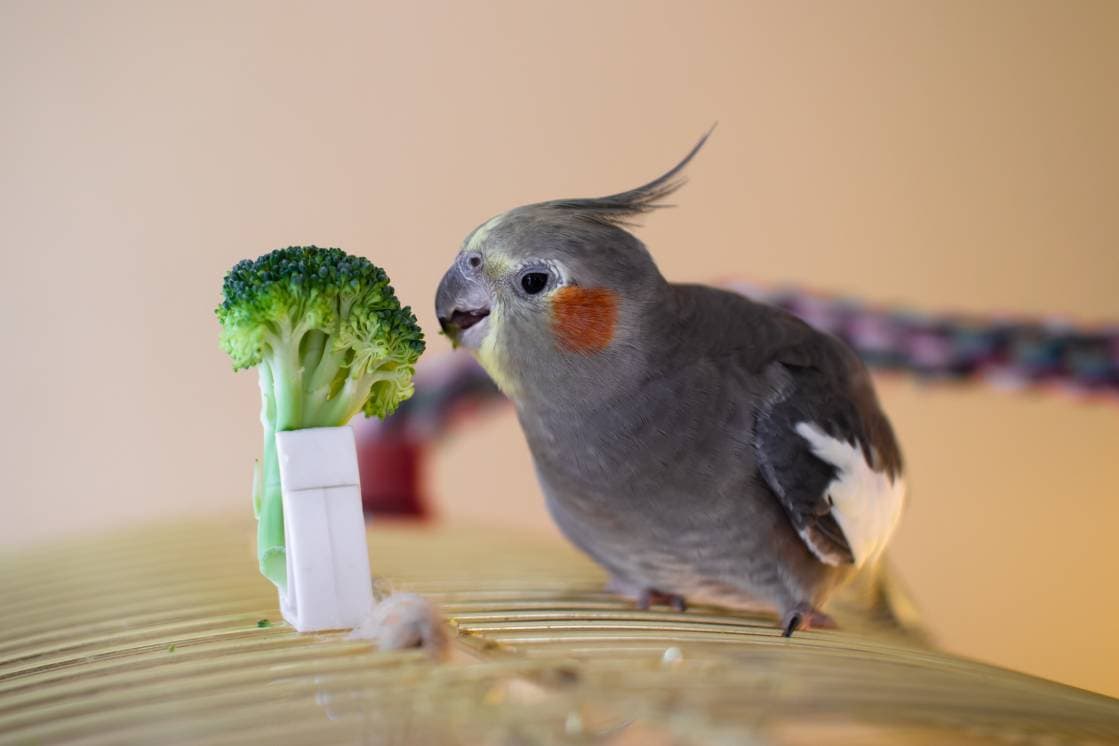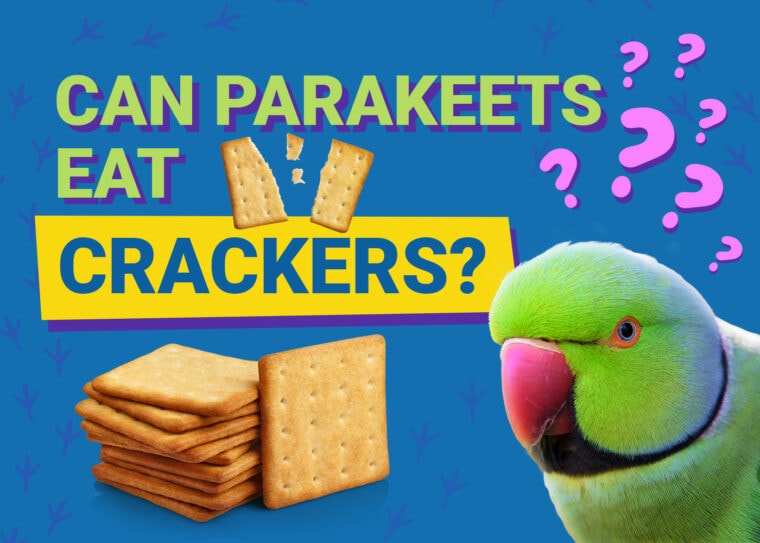
What pet owner doesn’t like to share their snacks with their lovely, feathered companion? Even more so when this companion is the oh-so expressive and clownish little parakeet! However, some snacks are off-limits, mainly because they can be potentially harmful to your bird friend. Crackers are one of the foods you should avoid giving parakeets, although a single low-salt or unsalted cracker can be offered as an occasional treat. Let’s take a look at why salt is bad for birds and other do’s and don’ts when it’s time to feed your parakeets.
Why Are Salty Snacks Bad for Birds?
Most of us love to munch on a salty snack in front of our favorite movie. And we are all aware that too much salt isn’t good for us. The same principle applies to birds, although even a little bit of salt can be toxic to a tiny parakeet. Why is that? Because, according to PetMD, even a single salty chip or pretzel can disrupt the electrolyte and water balance in a bird’s tiny body, leading to excessive thirst, dehydration, kidney failure, and death. But the good news is that you can give your bird a small bite of unsalted crackers or popcorn without damaging their health.
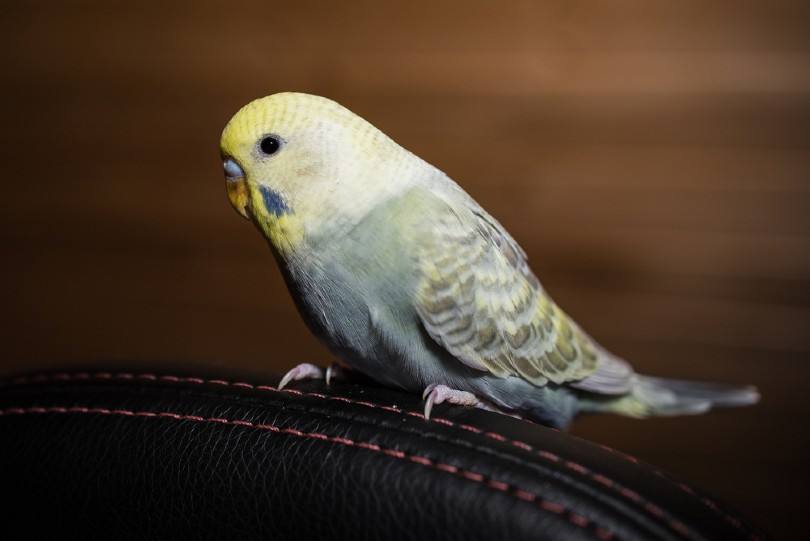
Do Birds Need a Small Amount of Salt for Good Health?
If the salt from a single pretzel is potentially dangerous for the parakeet, why do foods specially designed for birds and sold in pet stores contain a small amount?
Because salt is an essential mineral required by all living animals to survive. A lack of salt can cause excessive fluid excretion (polyuria), weight loss, lethargy, and slower growth. Humans eat foods that naturally contain salts, such as meat and eggs, but parakeets and other parrots sometimes have a diet low in essential minerals. This is unfortunately due to the owners’ lack of knowledge regarding the optimal diet of these winged creatures. In nature, they instinctively seek sources of salt to compensate for a diet rich in fruits and plants.
This is because although salt makes up only a small portion of body weight, it plays a crucial role in maintaining health, nerve, and muscle function, and regulating body fluids and is necessary for your bird’s overall health.
How to Balance Your Parakeet’s Diet
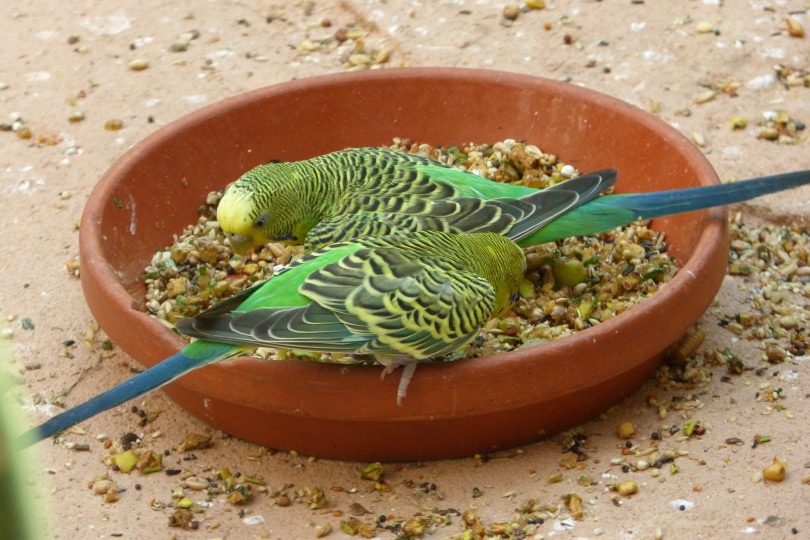
Potassium is an essential mineral to include in your bird’s diet. Indeed, it is crucial for maintaining a balance of electrolytes and water levels in his body; this mechanism is called osmoregulation. Potassium works by exerting the opposite action to that of sodium (salt).
Sodium and potassium are interconnected and interdependent. These are the two main electrolytes that work together to help regulate fluid balance, muscle contractions, and nerve signals. So, consuming foods rich in potassium helps restore the balance between these two essential minerals.
You can feed your parakeet the following foods because of their high potassium content. Besides, you should think about including them in your diet too!
What Are the Other Mineral Needs of Your Parakeet?

Throughout its life, your bird will need a healthy and balanced diet. However, this diet is likely to be adapted according to its physiological stage, during reproduction, molting (renewal of plumage), or growth of the young. Your parakeet gets more tired and needs more vitamins, minerals, trace elements, and amino acids during these times. Your bird’s diet must therefore meet its mineral needs.
In addition, many pet birds are often deficient in calcium, which is also an essential element for their skeleton or the shells of their eggs. Give your parakeet a cuttlefish bone or oyster shell debris. Birds also need a supply of trace elements (copper, iron, cobalt, manganese, zinc, and iodine). Parakeets, in particular, need iodine, an essential element to be administered in very small quantities.
The food of birds must also contain vitamins because they cannot synthesize them. Vitamins in fresh foods and formulated pellets are essential for their growth and resistance to disease. Choose treats fortified with vitamins A, D3, E, and all those of group B, including vitamin B12.
What Foods Should You Give Your Parakeet?

Parakeets feed on whole foods that you find in the form of formulated pellets. A balanced diet should consist of 70% formulated pellets and about 30% fresh vegetables and fruits. You can supplement this staple diet by adding a small number of nuts and seeds.
Plus, parakeets love sunflower seeds, which you must give in moderation because of their high-fat content. Add to your parakeet’s diet a few spinach leaves and a piece of fruit, preferably organic. Finally, you can supplement their diet with a bit of animal protein, such as cooked eggs.
What Foods Are Toxic to Parakeets?
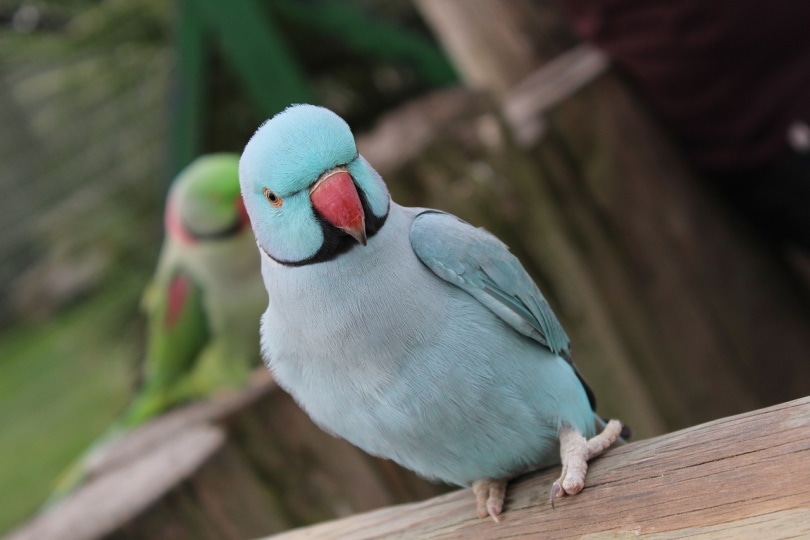
You can feed your parakeets most edible foods for humans, except for a few that are prohibited:
Final Thoughts
Parakeets are such endearing pet birds that they can brighten up your day just by looking at you with their expressive little faces. Sharing your snack with your pet bird allows you to strengthen your bond with your animal. However, even if you are fond of crackers, avoid sharing this treat with your bird. There are plenty of other less toxic options that will make your parakeet happy and healthy.
Something else to consider:
- Can Parakeets Eat Bread? What You Need to Know!
- Can Parakeets Eat Sunflower Seeds? What You Need to Know!
Featured Image Credit: Tatyana Soares, Shutterstock



